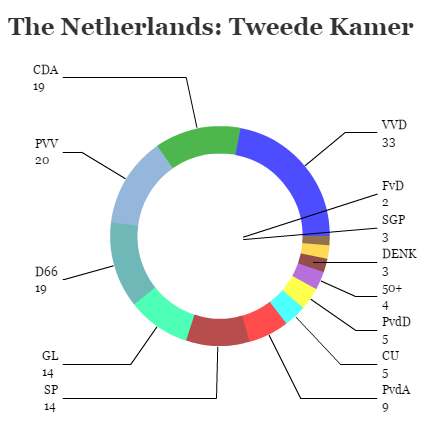
But as it turns out, orange is also the new bulwark for liberal democracy.
Mark Rutte’s governing center-right, liberal Volkspartij voor Vrijheid en Democratie (VVD, the People’s Party for Freedom and Democracy) performed better than polls predicted in The Netherlands, and Rutte will now return as Dutch prime minister — perhaps through the end of the decade — as head of a multi-party governing coalition.
Conversely, Wednesday’s election amounted to a disappointing result for Geert Wilders and the sharply anti-Europe, anti-Islam and anti-immigration Partij voor de Vrijheid (PVV, Party for Freedom
As Dutch voters took a harder look at the campaign, however, they turned away from Wilders’s populism and to the balmier vision of Rutte’s VVD. But they also turned to three other parties that ranged from conservative to liberal to progressive. Indeed, over 65% of the Dutch electorate supported parties that are, essentially, in favor of moderate policymaking, European integration and basic decency to immigrants.
Given that the Dutch election is the first of a half-dozen key European national elections in 2017, all of which are taking place in the dual shadows of last year’s Brexit referendum and Donald Trump’s election in the United States, everyone was watching this vote in particular as a harbinger for European elections this year.
So what does today’s result mean? Here are the top eight takeaways from election night.
Continue reading Eight lessons from the 2017 Dutch election results

